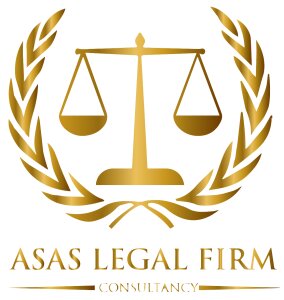Best Private Client Lawyers in Egypt
Share your needs with us, get contacted by law firms.
Free. Takes 2 min.
Or refine your search by selecting a city:
List of the best lawyers in Egypt
About Private Client Law in Egypt
Private Client law in Egypt refers to the wide range of legal services provided to individuals and families, rather than corporations or organizations. This area of law often includes estate planning, inheritance, wills, family business succession, tax planning, trusts, and issues regarding personal wealth. Egyptian Private Client lawyers support clients to ensure that their assets and affairs are managed, distributed, and protected according to their wishes and within the local legal framework. With Egypt’s unique legal system, influenced by Sharia law and the civil code, Private Client legal services require a deep understanding of both the legal and cultural context.
Why You May Need a Lawyer
There are several situations where you may need the assistance of a lawyer experienced in Private Client matters in Egypt. Some common scenarios include:
- Preparing or contesting a will
- Managing the distribution of family assets or inheritance
- Establishing trusts or private foundations
- Handling tax planning and compliance for your personal wealth
- Managing family business succession and governance
- Resolving inheritance disputes among family members
- Making gifts or donations, including charitable giving
- Dealing with property ownership, transfer, or registration
- Arranging legal guardianship or power of attorney for minors or elderly relatives
- Protecting assets from unforeseen legal claims
A lawyer can help you navigate the complexities of Egyptian law, advise on the best course of action, and ensure all documents and procedures are legally compliant.
Local Laws Overview
Egyptian Private Client law is shaped by several key legal sources. The Civil Code is the primary set of rules governing contracts, wills, gifts, and inheritance. Personal status laws, which can depend on an individual’s religious background, set out important inheritance and family law principles. For Muslims, inheritance and succession are governed largely by Sharia law, which provides mandatory shares for certain heirs (such as children and spouses). Non-Muslims may follow their own communities’ rules, but are also subject to Egyptian civil law provisions.
Other relevant areas include:
- Wills and Inheritance: Egyptian law restricts the freedom to dispose of property, especially for Muslims, to ensure certain heirs’ shares are protected. Non-Muslim Egyptians may have slightly more flexibility in estate planning.
- Tax: Egypt has no inheritance or gift tax, but other taxes may apply depending on how property is transferred and on residency status.
- Property Ownership: Egyptian law places restrictions on foreign ownership but generally allows Egyptians to own, gift, and transfer property.
- Trusts: Traditional trusts are not recognized under Egyptian law, but certain arrangements can be made using foundations or local equivalents.
- Family Business Succession: Special planning is often needed to ensure businesses can continue operating smoothly after the founder’s death.
Engaging a local lawyer is especially important due to the interplay between civil law, religious rules, and local customs.
Frequently Asked Questions
How is inheritance determined in Egypt?
For Muslims, inheritance is distributed according to Sharia law, with shares allocated to specific heirs. For non-Muslims, inheritance may follow community rules or, in some cases, the Civil Code. Inheritance laws are complex, so legal advice is recommended.
Can I dispose of my assets as I wish by making a will?
Wills are allowed in Egypt, but for Muslims, only up to one-third of an estate can be allocated freely in a will. The remaining two-thirds must follow the fixed heirs’ shares under Sharia law. Non-Muslims may have greater flexibility.
Is there inheritance tax in Egypt?
Currently, there is no inheritance or gift tax in Egypt. However, other taxes such as capital gains tax may apply to certain transfers of property.
Can foreigners inherit property in Egypt?
Foreigners may inherit property in Egypt but may face restrictions on owning certain types of real estate. Legal consultation is important to comply with local rules.
What should I do if I want to challenge a will or inheritance distribution?
You should seek legal assistance immediately. There are strict rules and deadlines for contesting a will or the distribution of an estate, and procedures may vary based on religious and civil law.
Are trusts recognized in Egypt?
Traditional Anglo-Saxon trusts are not recognized in Egypt. However, similar outcomes may be achieved using foundations or certain contractual arrangements, according to local law.
How can I protect my assets for my children?
Asset protection can be achieved through careful estate planning, use of certain legal structures, and by ensuring your will complies with Egyptian laws on inheritance. Professional legal advice is important in this process.
How are debts handled when someone dies?
Debts and obligations must be paid from the deceased’s estate before inheritance is distributed to the heirs. Creditors have the right to claim from the estate assets.
Can I give gifts of property during my lifetime?
Yes, individuals can make gifts of assets such as cash or property during their lifetime, but certain formalities and documentation may be required for legal validity.
What happens if someone dies without a will in Egypt?
If a person dies without a will (intestate), their assets will be distributed according to the applicable personal status law (usually Sharia law for Muslims or specific rules for other communities). The default legal rules allocate shares among eligible heirs.
Additional Resources
If you need more information or assistance with Private Client matters in Egypt, consider reaching out to the following resources:
- The Egyptian Bar Association
- Local offices of the Ministry of Justice
- Chambers of commerce for guidance on business succession
- Community legal clinics or non-profit organizations offering family law support
- Registered private notaries for assistance with documentation and registration
If you are a foreigner, your embassy or consulate may provide lists of qualified local lawyers with experience in Private Client law.
Next Steps
If you need legal assistance for Private Client matters in Egypt, start by gathering all relevant documents, such as identification papers, property documents, business records, and any previous wills or legal agreements. Make a list of your main concerns and objectives. Next, consult with a local lawyer who specializes in Private Client services. A qualified lawyer can review your situation, guide you through your options, and help you draft or update legal documents to ensure compliance with Egyptian law. Early legal advice is key to avoiding future disputes and ensuring your wishes are respected.
Lawzana helps you find the best lawyers and law firms in Egypt through a curated and pre-screened list of qualified legal professionals. Our platform offers rankings and detailed profiles of attorneys and law firms, allowing you to compare based on practice areas, including Private Client, experience, and client feedback.
Each profile includes a description of the firm's areas of practice, client reviews, team members and partners, year of establishment, spoken languages, office locations, contact information, social media presence, and any published articles or resources. Most firms on our platform speak English and are experienced in both local and international legal matters.
Get a quote from top-rated law firms in Egypt — quickly, securely, and without unnecessary hassle.
Disclaimer:
The information provided on this page is for general informational purposes only and does not constitute legal advice. While we strive to ensure the accuracy and relevance of the content, legal information may change over time, and interpretations of the law can vary. You should always consult with a qualified legal professional for advice specific to your situation.
We disclaim all liability for actions taken or not taken based on the content of this page. If you believe any information is incorrect or outdated, please contact us, and we will review and update it where appropriate.
Browse private client law firms by service in Egypt
Egypt Attorneys in related practice areas.
Browse private client law firms by city in Egypt
Refine your search by selecting a city.










